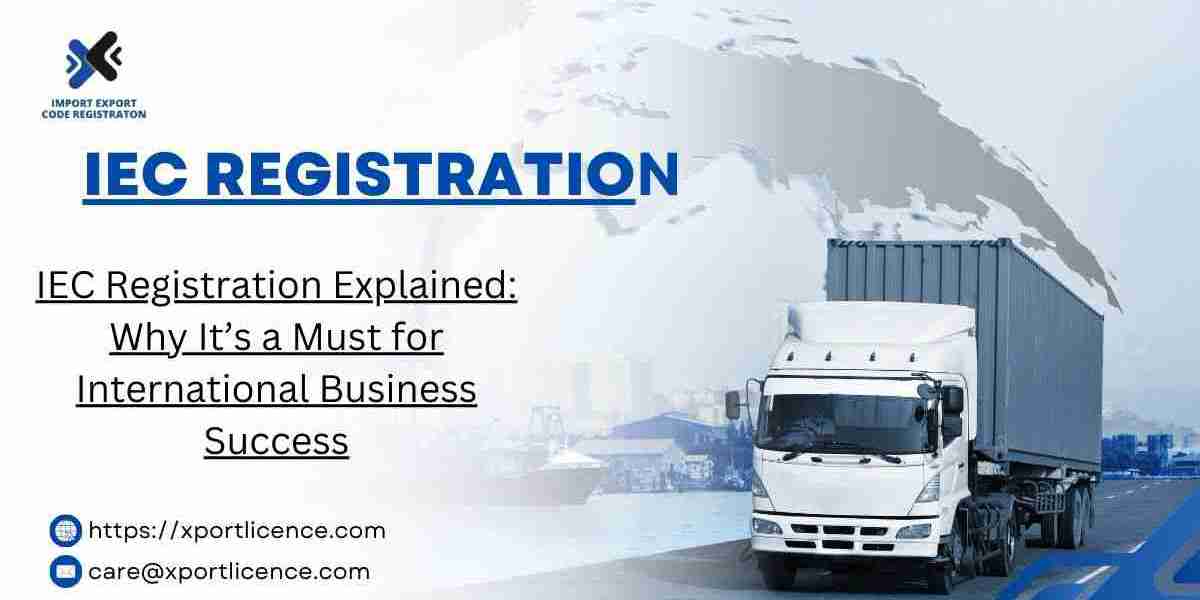Introduction
In today’s global economy, businesses of all sizes increasingly look beyond domestic borders to tap into new markets, customers, and revenue streams. While the idea of going international is exciting, it’s also a complex process that requires meeting certain legal and regulatory requirements. One of the key steps for any Indian business looking to import or export goods is obtaining an Importer Exporter Code (IEC). Issued by the Directorate General of Foreign Trade (DGFT), the IEC is a 10-digit code that acts as the first step in establishing a company’s credentials in the global marketplace. Without it, businesses cannot legally import or export goods. But the significance of the IEC goes far beyond mere legality—it’s a crucial tool for ensuring smoother international operations, gaining market access, and paving the way for long-term success. In this blog, we’ll break down what IEC Registration is, why it’s essential, and how it benefits businesses aiming to thrive on the international stage.
What is IEC Registration?
IEC registration is a mandatory requirement for any business in India that wants to engage in the import or export of goods or services. It’s a unique identification number that serves as a reference for customs, banks, and regulatory authorities, ensuring that international trade activities are tracked and compliant with Indian trade laws. IEC registration is relatively simple to obtain, and once issued, it is valid for the lifetime of the business. There are no renewal or annual maintenance requirements, making it a one-time process that provides ongoing benefits for as long as your company continues to trade internationally.
Why IEC Registration Matters
1. Legal Authorization for International Trade
Without an IEC, businesses are not permitted to import goods into India or export goods to other countries. The IEC acts as a business’s entry ticket to the global market. Once registered, a company can freely participate in international trade, ship products overseas, and source materials or goods from foreign suppliers.
For any business that relies on cross-border transactions, IEC registration isn’t just a formality—it’s a legal necessity. Companies that try to operate without it risk penalties, fines, and even a halt to their trading activities.
2. Streamlining Customs and Regulatory Processes
Having an IEC simplifies dealing with customs and other regulatory authorities. The IEC number is required during customs clearances, making it easier to process shipments and avoid delays. By ensuring that all necessary documentation is in place, businesses can prevent bottlenecks that might disrupt their supply chain or delay order fulfillment.
Moreover, the IEC serves as a reference point for various government bodies, banks, and financial institutions involved in international transactions. It helps maintain transparency and compliance, giving businesses peace of mind and a smoother operational flow.
3. Accessing Global Markets
One of the most compelling reasons to obtain IEC registration is the access it provides to global markets. With an IEC, businesses can sell products and services beyond India’s borders, opening up new revenue streams and customer bases.
Expanding into international markets not only increases sales potential but also reduces reliance on domestic demand. This diversification helps stabilize business revenues, making the company less vulnerable to local market fluctuations.
4. Claiming Export Incentives and Benefits
The Indian government offers various export incentives and schemes to encourage businesses to go global. For example, the Merchandise Exports from India Scheme (MEIS) provides duty credits on certain exports, and the Service Exports from India Scheme (SEIS) offers rewards to service providers.
To access these benefits, businesses must have a valid IEC. By registering, companies can claim these incentives, lower their costs, and improve profitability. Over time, these savings can be reinvested in expanding operations, developing new products, or improving service quality.
5. Enhancing Credibility and Trust
In the international marketplace, credibility is everything. Foreign buyers, suppliers, and partners often look for signs of legitimacy and compliance when dealing with Indian companies. An IEC provides that assurance.
By showcasing that your business has the necessary legal documentation and operates by Indian trade regulations, you build trust with international stakeholders. This trust can lead to stronger partnerships, better payment terms, and more favorable agreements.
6. Simplifying Financial Transactions
International trade involves dealing with foreign currencies, bank transactions, and exchange control regulations. Banks require an IEC to process payments related to imports or exports. Without it, businesses may face hurdles in receiving funds from overseas clients or paying foreign suppliers.
IEC registration ensures that financial transactions are smooth, transparent, and compliant with both Indian and international banking regulations. This efficiency reduces payment delays, enhances cash flow management, and helps maintain strong relationships with foreign partners.
7. Future-Proofing Your Business
As global trade continues to evolve, having a solid foundation for international operations becomes increasingly important. IEC registration is more than just a regulatory step—it’s a strategic move that positions businesses for long-term growth.
Once registered, companies can explore emerging markets, respond quickly to new opportunities, and scale their operations without additional bureaucratic hurdles. In essence, the IEC serves as a building block for sustained international success.
Note: Update IEC code in easy steps with Our Portal
Conclusion
For any Indian business with ambitions of going global, IEC registration is the first and most important step. It’s a legal requirement that unlocks a world of opportunities—enabling international trade, simplifying regulatory processes, accessing government incentives, and building credibility in the global marketplace. IEC registration isn’t just about compliance; it’s about empowerment. It gives businesses the tools and recognition they need to compete on a global scale, ensuring smoother operations, enhanced trust, and a stronger competitive edge. If your company is looking to expand its reach, increase revenues, and establish a lasting presence in international markets, IEC registration is an essential part of the journey.














